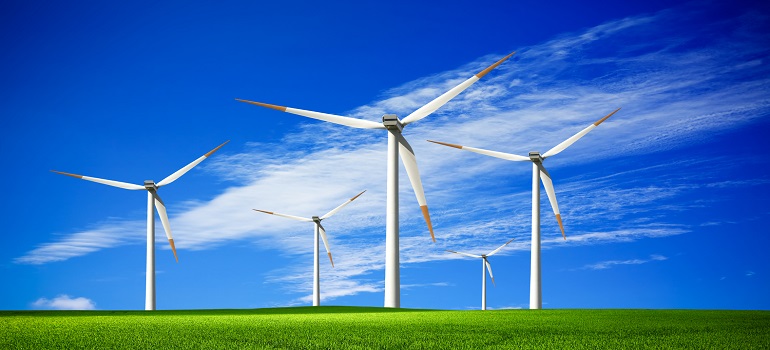
Vestas is providing a customised solution for the 159 MW Parc Eolien Taiba N’Diaye, Senegal’s first large utility-scale wind energy project and the largest wind project in West Africa.
The wind farm will expand the country’s generation capacity by 15 percent, support the development of affordable renewable energy and diversify Senegal’s energy mix as well as provide positive social and economic impact for the nearby communities.
The engineering, procurement and construction (EPC) contract was signed with Parc Eolien Taiba N’Diaye, a company majority-owned by Lekela, an experienced renewable energy company that has developed 1.3 GW of wind and solar projects across Africa, and partly-owned by French developer Sarreole that has been part of the project from its beginning.
The order includes the supply, transport, installation and commissioning of 46 V126-3.45 MW turbines, as well as an Active Output Management 5000 (AOM 5000) service agreement for the operation and maintenance of the wind park over the next 20 years.
Today, Senegal’s energy matrix mainly depends on costly imported fossil fuels. By banking on renewables, Senegal will be able to generate clean, reliable and competitively-priced energy to fulfil the rapidly expanding local grid.
“This is a very special order for us, since together with Lekela, we are delivering a project that will represent 20 percent of the country’s energy mix and have a positive impact on Senegalese communities, providing opportunities for local employment while responding to the country’s energy challenges. Working in close collaboration with all the partners has been a success factor for this great achievement. Vestas has installed wind turbines in around 80 markets, including more than 1 GW in Africa, providing clean energy and fostering local jobs and training. With this project, we will contribute to Senegal in the same way through sharing our extensive knowledge and deep experience of supporting wind energy projects in emerging markets”, says Nicolas Wolff, Vestas’ VP Sales Region Western Mediterranean.
“This is a major milestone for Senegal, and for Lekela. As the first utility-scale wind power project in the country, Taiba N’Diaye forms a critical component of Senegal’s clean energy strategy. The project will create an impact that lasts for generations. We have many people to thank in reaching this point, not least the communities, stakeholders and partners like Vestas who we’ve worked closely with in recent months”, says Chris Ford, Chief Operating Officer at Lekela.
Vestas has a proven track record on working with customers and other stakeholders to improve project bankability to meet international standards, and ensuring the projects’ technical, commercial and social aspects are addressed. Vestas and Lekela have partnered together to build and maintain positive relationships with the communities impacted by the project through ongoing engagement, creating local job opportunities, and supporting the customer’s community investment initiatives during construction.
Vestas’ long-time financing partner EKF Denmark’s Export Credit has backed the project with a 140-million-euro export loan, securing the project’s financial stability and maximising the customer’s return on investment.
“It is a core competence of EKF to ensure financing for ground breaking projects like. This is a very solid project with a strong commitment from the Senegalese government, Vestas – a world leader in sustainable energy solutions – and Lekela an experienced developer of sustainable energy projects in Africa. All very important factors when it comes to ensuring financing. It is our hope to see more projects like this in the region in the future”, says Anette Eberhard, CEO of EKF, Denmark’s’ Export Credit.
The wind project is in advanced stage of development, ready for construction. Turbine delivery, as well as commissioning are planned to be accomplished in three phases: deliveries between the second and the third quarters of 2019, whilst commissioning between the third quarter of 2019 and the first quarter of 2020.

